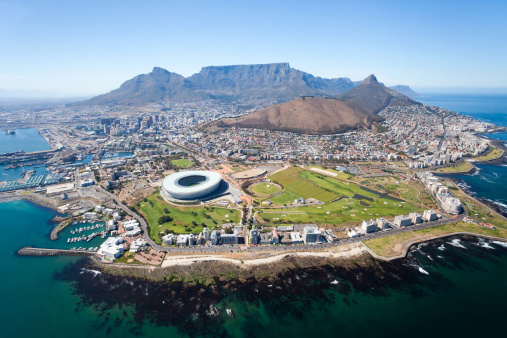Hoping to counter China’s growing clout in Africa, India is pressing for faster action on a preferential trade agreement with the Southern African Customs Union (SACU). India is increasingly looking to tap resource-rich Africa, with two-way trade poised to reach $70 billion by 2015 from $46 billion at present.
Meeting in Johannesburg, South Africa, earlier this year with his South African counterpart, Industry and Trade Minister Rob Davies, Shri Anand Sharma, India’s Union Minister of Commerce, Industry and Textiles, urged Davies to use his good offices to expedite SACU’s response to India’s proposal of average Margin of Preference (MOP) in the agreement so that the two sides can finalize and exchange their respective responses to the tariff request lists.
Under the India-Southern African Customs Union Preferential Trade Agreement, India and SACU, which comprises Botswana, Lesotho, Namibia, South Africa and Swaziland, will reduce – not eliminate, as in a free trade agreement – their tariffs on specific products from the tariff levels they maintain with countries that are not parties to the pact. Negotiations for the pact began in 2007, but they have run into opposition from industry sectors in SACU, particularly from South Africa’s chemical sector, which accuses India and China of undermining local industries in small markets like South Africa by selling the tail end of their products at unfairly low prices in those markets, a process known as dumping. South Africa’s chemical industry accounts for about half of the workers in the country’s manufacturing sector.
Shri Sharma also expressed India’s concerns at the temporary suspension placed by the South African authorities on frozen boneless buffalo meat imports from India. It is to be noted that after recently granting market access to deboned and deglaned frozen boneless buffalo meat from India by approving one abattoir cum meat processing unit in Maharashtra in January, 2011, same has been temporarily suspended in the month of May 2011. Shri Sharma has requested that the matter may be looked into as the Indian meat conforms to the highest international norms and standards.
In January 2011, South Africa and India set a target of achieving $15 billion worth of bilateral trade by 2014. In his meeting with Davies in January, Sharma said the target figure should be reached well before 2014. Total trade between India and South Africa valued 13.65 billion in 2011, up from $10.53 billion in 2010.
Indian companies are among the largest investors in South Africa. They include such multinationals as Tata Group, Mahindra, Cipla, Ranbaxy, and Ashok Leyland. At the same time, South African multinationals are increasingly active in India. Most recently, South African Breweries, which acquired a majority stake in India’s Mysore Breweries. Energy giant Sasol is exploring the possibility of setting up a multibillion dollar plant in India. The Airports Company of South Africa, as part of GVK Consortium, won a bid for the modernization of Mumbai Airport.
Sharma and Davies agreed to meet again ahead of the next summit of trade ministers from the five BRIC countries – Brail, Russia, India, China and South Africa. The summit is scheduled for March 26-27 in Durban, South Africa’s third largest city and its busiest seaport. Sharma and Davies also agreed to coordinate the stances of their respective countries on World Trade Organization (WTO) issues.













